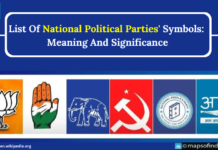Recently, India-US-Japan held their sixth trilateral meet in Delhi. Though still at the official level, the meet is in sync with India’s aspiration which together with IBSA (India-Brazil-South Africa) and others aims towards consolidating and expanding Delhi’s soft power in the rapidly changing geopolitics of the Asia-Pacific region. This contour was reflected well when on the sidelines of Brazil-held BRICS summit in July, Prime Minister Narendra Modi announced hosting IBSA meet in India in early 2015. The 2013 IBSA meet was also held in Delhi. Given this, many see India’s attempt to hold almost back-to-back IBSA meet in the context of the United Nation’s Security Council reform which IBSA members and G4 blocs comprising India, Brazil, Japan and Germany want to complete by 2015, the year when 70th anniversary of the founding of this world body would be celebrated.
India wants to boost IBSA to b consolidate its position in the Asia-Pacific region
In its attempt to carry on with its twin objective of consolidating its position in the Asia-Pacific region and securing a position in the Security Council, India wants to pump in energy and dynamism in IBSA. This is what several foreign watchers aver. They say that India’s objective to secure its position in the Asia-Pacific region is clear in the India-Japan joint statement and the India-US joint statement which talk about preserving regional peace and stability and the Asia-Pacific region’s continued prosperity.
IBSA: important for India’s greater role at the UN Security Council and other global platforms
In this regard, India finds itself closer to IBSA than BRICS, the group where China with its military and monetary clouts wields more influence than others. Nonetheless, with Narendra Modi at the helm of India’s affairs, Delhi doesn’t want to work at cross purposes of the other. Rather, foreign policy of the current government at the Centre seems to be to push the agenda of geo-economics to increase the volume of trade and commerce with as many countries as is possible on the one hand and on the other, build up relations with countries which are democratic to the core. While the BRICS fulfills geo-economics goal, the IBSA provides opportunity to strengthen democratic block, and together they contribute in pushing up India’s aspiration for a global role. “Both BRICS and IBSA are important for us. Although BRICS is more powerful in leveraging its political and economic influence across the world, IBSA is playing a great role at the UN Security Council and other international platforms,” an official of South Block said.
IBSA member countries have closer defence cooperation
Strategically too, IBSA member countries regularly conduct naval exercises in the Indian Ocean. Just recently three countries held 20-day drill off the coast of South Africa. This drill, held at the interval of two years since 2008 was the fourth edition of IBSMAR series. INS Teg, a stealth frigate which was commissioned into the Indian Navy on April 27, 2012 had participated in the three-nation drill. Comparatively this is missing with BRICS. All five members of the group have hardly held a joint naval exercise, though, Russia and China or South Africa and China have conducted exercises regularly but they were held in their bilateral capacity not in multilateral capacity. Officials of the MEA say that talks are on to turn the biennial exercise into annual one. At the next Trilateral Commission meeting of the IBSA in South Africa, for which dates are in the process of finalisation, defence cooperation and naval exercise between India, Brazil and South Africa would be one of the agenda of the talks.
Intra- trade of IBSA members stands at $23 billion
On the trade front their dealings have already defanged critics who used to say India-Brazil-South Africa would not be able to put weight behind their three-way trade because of their involvement with larger forums like BRICS. The combined intra- trade of IBSA members stands at $23 billion; by 2015, it is expected to cross $25 billion target fixed by the group. But it is intra-investment of the group which is in abysmal situation. In fact, IBSA members’ investments shift towards other developing countries than among themselves. And this was an issue of talk between Prime Minister Modi and South Africa’s Jacob Zuma in Brazil.
Despite some shortcomings, IBSA has a reputation of being close to least developing countries. IBSA Fund in which all three countries contribute equally, is used in capacity building, empowerment of women, and agricultural production – all these form part of a dozen projects spread across African continent, Southeast Asia and West Asia. Quantum of contribution from each member is likely to be increased. May be during the forthcoming IBSA summit, it would happen, say MEA officials. India together with Brazil and South Africa is eager to increase soft power influence in poor countries and this would not happen without increasing the flow of fund from IBSA members. To this regard, the group’s contribution in the post conflict reconstruction activity in places like Palestine, Haiti and Libya has received accolades from several UN members. In Palestine, a sports complex has been built with IBSA Fund. Also the group has announced reconstruction of a medical centre in Gaza and for which $1million has been pledged. Sources say that in the September held meet of IBSA foreign ministers in New York, member nations of the group decided to play an active role in reconstruction of crisis ridden African countries. In comparison, BRICS with much economic clout doesn’t have any such activity in its agenda.
Groups like IBSA share a common ideology
In fact, Delhi is keen to see that IBSA creates a niche for itself in the comity of nations and remains different from BRICS where presence of permanent Security Council members like China and Russia, has made least efforts for social inclusiveness. Otherwise too, say some international watchers, when China’s aggressive rise has ruffled up feathers of countries like India, groups like IBSA share a common ideology among its members to stand united against Beijing. This is the reason why Delhi which held 6th IBSA summit in 2013, asserted to lead the group’s bandwagon in 2015 too.
Read More
How Can India Benefit From Becoming a Member of SCO?
India’s foreign trade – Rising beyond mere relations
What Can India Learn From China?
Bilateral Issues India Needs To Resolve
Indo-Russian bilateral trade – The imbalances and the remedy
Chinese Ads Depict Environmental Problems in India
Neighbouring Countries of india
India-Pakistan Relations: Is Spring Around the Corner?
India Pakistan Border Dispute
Pakistan: Intensifying Anti-India Agenda



